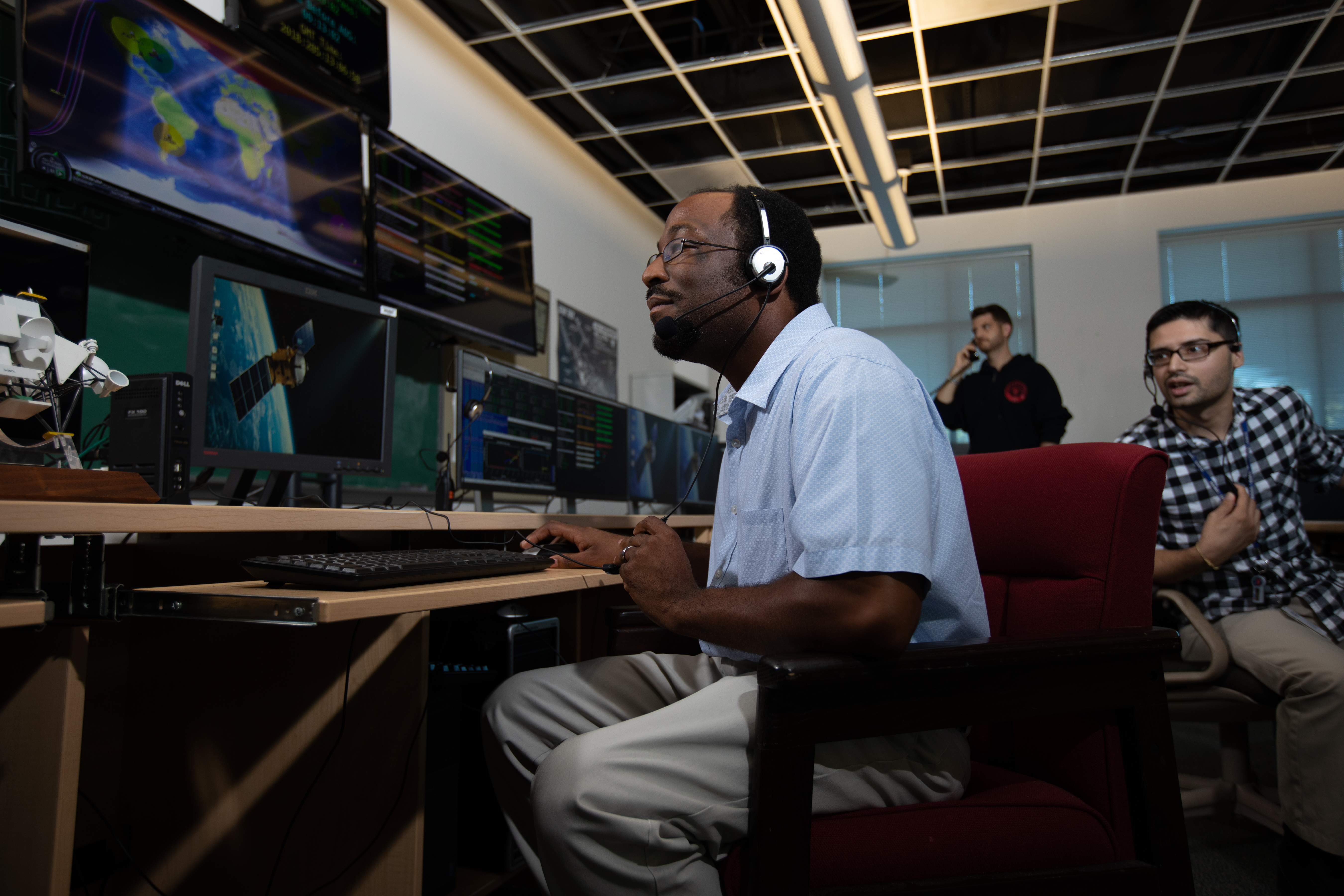Student Voice: Leader of the Astronomy Club Shares His View of the International Space Station
May 28, 2020By Matthew Lewin
In preparation for NASA’s rescheduled SpaceX launch, the first crewed mission to the Space Station from the U.S. since 2011, we are looking at our own students’ interactions with the Space Station from last semester.
Matthew Lewin, student lead of the Astronomy Club, took time to write about his experience before COVID-19 required the university to move to off-campus. Matthew, who regularly look to the sky for information and entertainment, quickly found that his hobby was widely shared when a new student walked into the Fusion Lab with questions about the hard-to-miss International Space Station (ISS) tracker display.
- This is Matthew’s story -
A new student came into the Fusion Lab who was interested in everything in the lab had to offer, but he was particularly intrigued by the International Space Station (ISS) tracker display. He wasn’t sure what it was so I explained to him that it tracks the ISS in real time and that it just so happened that it was about to pass over the school in about 5 minutes.
I told him that if we went outside, we’d be able to see it pass over us. He was in disbelief and thought that I was making it up, but I assured him that it was real and that we will be able to see it. We went out into the cold night and waited about 5 minutes. From looking at my ISS tracking app, I had a good idea of where it would be coming from along the horizon and I told him it would probably be coming up over the old dorm buildings.
About a minute later, he pointed out a small faint light rising above the buildings. It took me a second to make sure that it wasn’t a plane-sure enough it was indeed the ISS. His next words to me as he looked at it passing over was “Bro you’re a god! To me, you just predicted a star coming out of the sky. That’s amazing”
As flattered as I was, I told him that it’s just a matter of knowing our location and the 90 minute orbit of the ISS. After the station passed, I told him that we could also see Venus and the Orion Nebula given that the night was pretty clear. After grabbing the astronomy club’s 6-inch reflector telescope and heading back outside, we were able to take a good look at Venus. The student was surprised at how bright it really was.
He was puzzled as to why it looked like there were different colors and why it had a distorted almost gas-like texture around it. I went on to explain to him how the atmosphere distorts the sunlight being reflected from Venus and that its positioning low on the horizon was the main reason. The next celestial object we took a look at was the Orion Nebula. He had heard of the constellation Orion and knew what it looked like, but had never heard of the nebula. After focusing in on the nebula, I told him that it would look like a small cluster of stars with a faint cloud around it.
As he looked into the eyepiece, his jaw dropped and an ear-to-ear smile spread across his face. He was absolutely amazed at what he was seeing. I showed him a detailed picture of the nebula that Hubble took as reference and it was really cool to match up the stars in the photo to what he was seeing. The student then said, “It’s just so wild to see it with your own eyes and to know that its real and it’s right there, but it’s also so far away at the same time!”
After showing him the basics of everything and how much fun it really is to go out and look at these amazing objects in the night sky, he immediately asked to join the Astronomy Club. These are the kind of experiences that I love about not only being an Astronautical Engineering (AE) major and an astronomy enthusiast, but being a Capitol student and teaching others what I know about my passions. Everyone looked up at the stars when they were little and so many of us still do today without knowing what is really out there. If I can get more people to understand and enjoy learning about the way the universe works, my job has been done.



